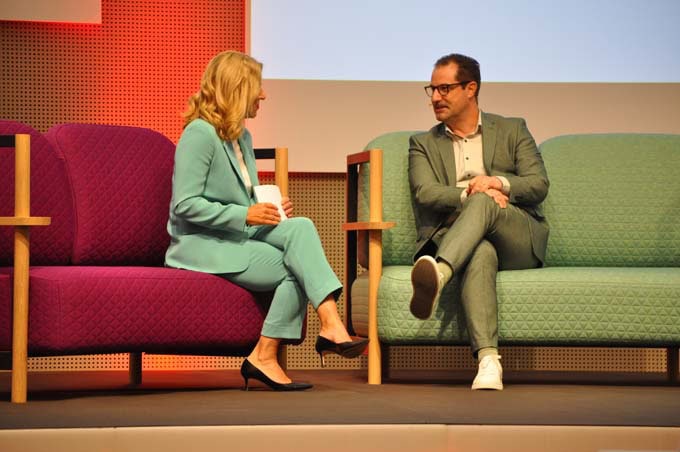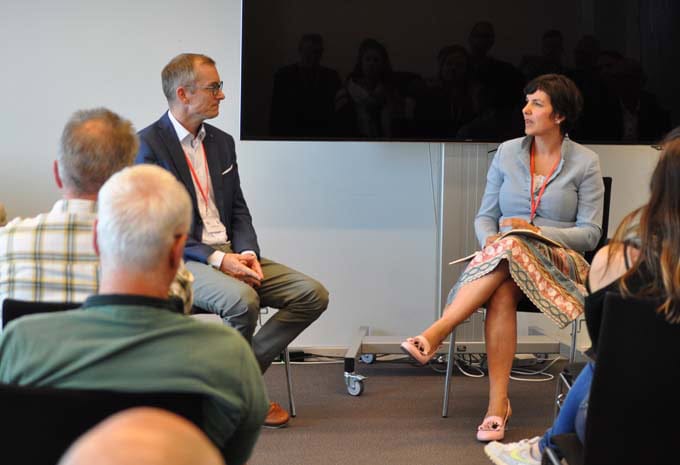Swiss Governance Forum 2025: Regulation and innovation in the healthcare system
On Thursday, June 26, 2025, the seventh Swiss Governance Forum (SGF) of the Competence Center for Public Management (KPM) will take place at the University of Bern, in collaboration with the Swiss Institute for Translational Medicine and Entrepreneurship (sitem-insel). It is dedicated to key issues relating to healthcare systems in Switzerland and abroad.

The Swiss Governance Forum 2025 reflects on the most pressing issues and the latest advances in healthcare. "The balance between necessary regulation and freedom of innovation is the key to a sustainable healthcare system," says Rudolf Blankart, Professor of Regulatory Affairs at the Competence Center for Public Management at the University of Bern and Director of Regulation at sitem-insel. "We need evidence-based framework conditions that ensure quality and at the same time enable new approaches to solutions." Rudolf Blankart will open the forum together with Virginia Richter, Rector of the University of Bern. The half-day event is aimed at decision-makers in public administration and politics, stakeholders in the healthcare system and scientists working at the interface of management, economics, law and medicine.
Local and global perspective
The forum will show how scientific findings support political decisions and how the efficiency, quality and access to healthcare systems could be improved. A central focus will be on international organizations such as the Organization for Economic Cooperation and Development (OECD). "Healthcare systems around the world are facing similar challenges: rising costs and the simultaneous demand for the highest quality and accessibility," emphasizes Blankart. "The international comparison and the continuous exchange of experience between service providers, industry and science help us to identify effective solutions."
High-caliber speakers
The Swiss Governance Forum 2025 will also focus on system innovations and how players in a highly regulated healthcare system can improve innovative approaches, efficiency, quality and access. In order to discuss these challenges, the forum brings together various stakeholders and offers lectures and panel discussions with leading experts from science, politics, administration and industry, for example:
- Matthias Glück, CEO of Post Sanela Health AG
- Anne Lévy, Director of the Federal Office of Public Health, FOPH
- Dr. Ricarda Milstein, Health Policy Analyst in the Health Division of the OECD
- Annamaria Müller, health economist and expert in the Swiss healthcare system, Chairwoman of the Board of Directors of Fribourg Hospital (HFR) and President of the Swiss Forum for Integrated Care (fmc)
- Dr. Niowi Näf, Chief Strategy Officer of the Hirslanden Group
- Prof. Dr. Virginia Richter, Rector of the University of Bern
- PD Dr. Caroline Schlaufer, lecturer at the Competence Center for Public Management (KPM) and Head of the Ethics and Policy Lab of the Multidisciplinary Center for Infectious Diseases MCID at the University of Bern.
- Dr. Michaela Tschuor, member of the Lucerne cantonal government and head of the Department of Health and Social Affairs
- Benjamin Wyss, PhD student at the Chair of Regulatory Affairs at the Competence Center for Public Management (KPM), University of Bern and research assistant at sitem-insel
- Prof. Dr. Thomas Zeltner, internationally recognized expert on health issues and health systems, medical doctor, lawyer, professor of public health at the University of Bern and honorary doctor of the University of Neuchâtel
- Prof. Dr. Rudolf Blankart, Professor of Regulatory Affairs at the Competence Center for Public Management (KPM), University of Bern and Director of Regulation at sitem-insel
The Swiss Governance Forum is organized every two years by the Competence Center for Public Management (KPM) at the University of Bern and is dedicated to current and relevant topics in public management. It offers a platform that promotes the exchange between science, public administration, politics and industry. The aim of the forum is to incorporate scientific findings into political and entrepreneurial decision-making and at the same time to create a deeper understanding of the practical challenges in science.
Source and further information: www.kpm.unibe.ch/sgf




















